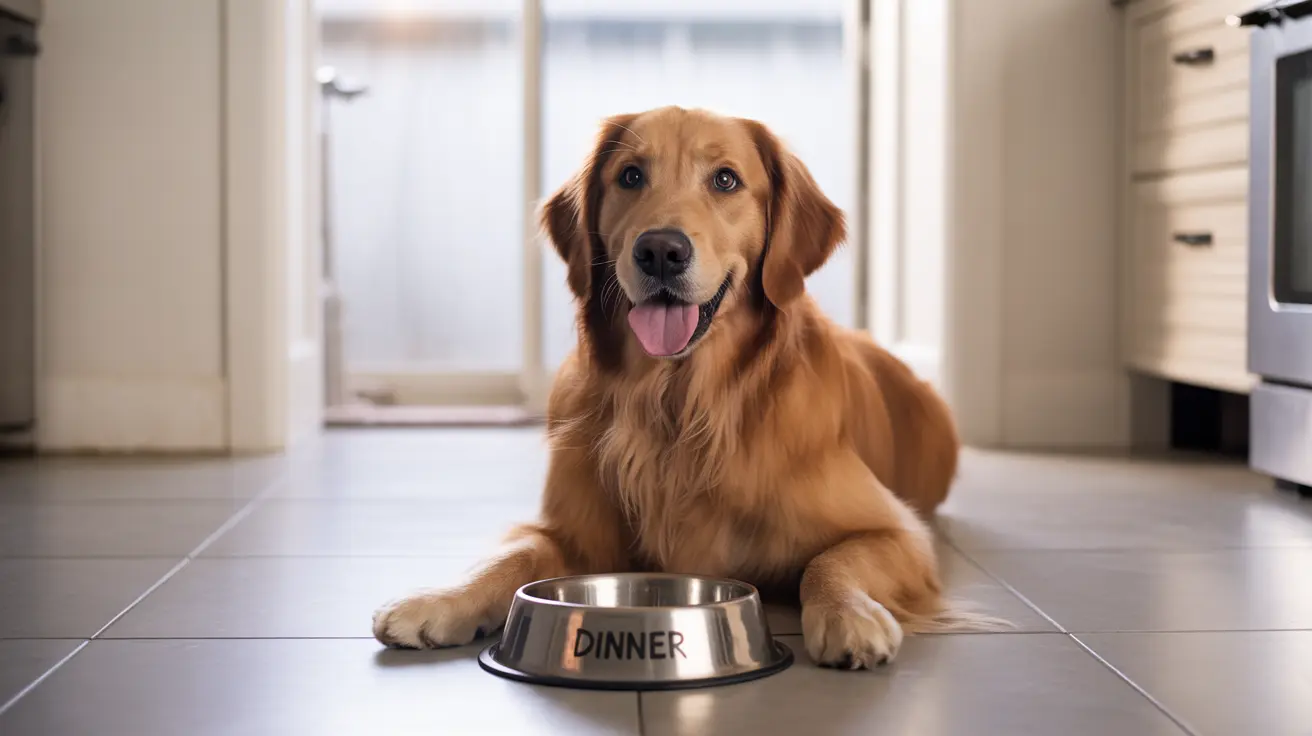Golden Retrievers are beloved family pets known for their gentle nature and friendly disposition. While they aren't typically heavy droolers like Saint Bernards or Newfoundlands, understanding their drooling patterns is crucial for responsible pet ownership. Let's explore what's normal, what's not, and when you should be concerned about your Golden Retriever's drooling habits.
As a breed, Golden Retrievers have relatively moderate drooling tendencies due to their facial structure. However, certain situations can trigger increased salivation, and it's important to distinguish between normal drooling and potential health issues.
Normal Drooling Patterns in Golden Retrievers
Golden Retrievers typically exhibit controlled drooling patterns. You might notice increased salivation in these common situations:
- During meal preparation or when treats are present
- While exercising or playing
- When excited or anticipating activities
- After drinking water
- In warm weather
These instances of drooling are generally temporary and resolve once the triggering situation ends. Most Golden Retrievers maintain relatively dry mouths throughout their daily activities.
Signs of Abnormal Drooling
While some drooling is normal, excessive or sudden changes in drooling patterns may indicate underlying health issues. Watch for these warning signs:
- Constant or excessive drooling
- Thick, stringy, or discolored saliva
- Blood-tinged drool
- Foul-smelling saliva
- Drooling accompanied by lethargy or behavior changes
Common Causes of Excessive Drooling
Medical Conditions
Several health issues can cause increased drooling in Golden Retrievers:
- Dental problems (tooth decay, gum disease)
- Oral injuries or foreign objects
- Nausea or digestive issues
- Heat stroke
- Anxiety or stress
- Motion sickness
- Respiratory infections
Environmental Factors
External circumstances that might trigger excessive drooling include:
- Exposure to toxic substances
- Extreme temperatures
- Stress-inducing situations
- New environments or changes in routine
Prevention and Management
To help manage your Golden Retriever's drooling:
- Maintain regular dental check-ups and cleaning
- Keep toxic substances out of reach
- Monitor exercise in warm weather
- Use cooling techniques when necessary
- Consider anxiety management techniques if stress is a factor
When to Seek Veterinary Care
Contact your veterinarian immediately if you notice:
- Sudden onset of excessive drooling
- Drooling accompanied by other symptoms
- Changes in eating or drinking habits
- Signs of oral pain or discomfort
- Behavioral changes
Frequently Asked Questions
Do Golden Retrievers normally drool a lot compared to other breeds?
No, Golden Retrievers are not known for excessive drooling compared to other breeds. Their facial structure and lip formation typically result in moderate drooling patterns.
What are the common health issues that cause excessive drooling in Golden Retrievers?
Common health issues include dental problems, oral injuries, nausea, heat stroke, anxiety, and respiratory infections. Some cases may also be related to poisoning or foreign objects in the mouth.
How can I tell if my Golden Retriever's drooling is a sign of a serious medical problem?
Look for drooling accompanied by other symptoms such as lethargy, loss of appetite, pawing at the mouth, bad breath, or behavioral changes. Any sudden increase in drooling should be evaluated.
What should I do if my Golden Retriever starts drooling excessively and shows other symptoms?
Contact your veterinarian immediately, especially if the drooling is accompanied by concerning symptoms. Keep track of when the drooling started and any other changes you've noticed.
How can I prevent or reduce excessive drooling in my Golden Retriever through proper care?
Maintain good oral hygiene, provide regular veterinary check-ups, keep toxic substances away from your dog, manage stress levels, and ensure proper temperature regulation during hot weather.
Maintaining awareness of your Golden Retriever's normal drooling patterns helps you quickly identify potential health issues. While occasional drooling is natural, being attentive to changes in frequency or consistency ensures you can provide prompt care when needed.






